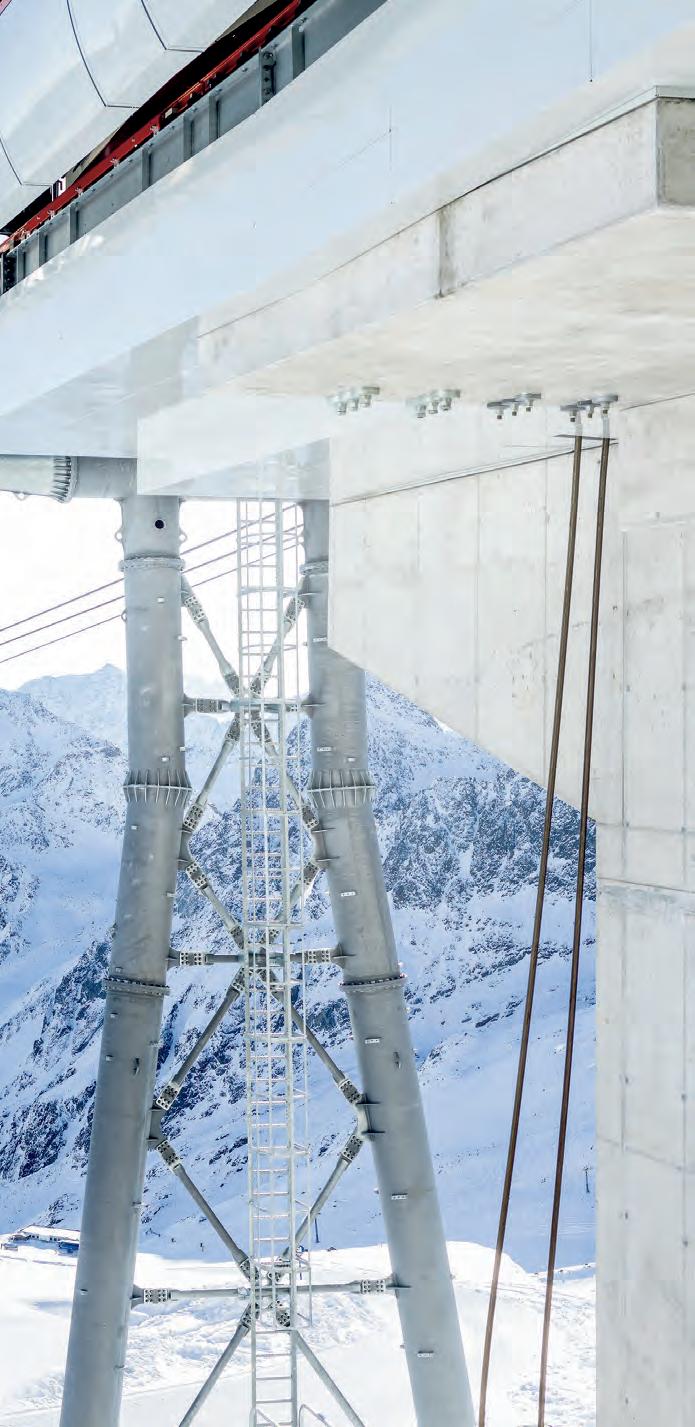
2 minute read
Sustainable
A holiday in the mountains means travelling, staying with hosts and enjoying nature – all activities that also produce greenhouse gases. True. But can anything be to counteract this?
According to a study by the Austrian Federal Environment Agency, the distance travelled to and from a holiday destination and the choice of transport account for the largest share of CO2 emissions. Travelling to and from the resort by train is the best option, as well as it being comfortable with no traffic jams. Guests staying overnight in the Stubai Valley also receive a voucher from the Tourismusverband Stubai Tirol for their arrival and departure in/from the Stubai Valley from/to Innsbruck for one free use of the 590 bus route (Bus Stubai) or the romantic Stubai Valley railway.
HEAD TO THE SNOW BY NIGHTJET
From 1 November 2021 to 7 May 2022, the Austrian Federal Railways (ÖBB) and the Stubai Glacier offer a climate-friendly combination ticket for skiing holidays in Stubai: the Nightjet combination ticket includes the return train journey on the ÖBB Nightjet (night train) from/to Hamburg, Düsseldorf, Amsterdam or Vienna including seat reservation to Innsbruck, the ski pass and transfer to the hotel of your choice in the Stubai. So you arrive in the Stubai well rested and can enjoy your first day of skiing on the glacier straight away. The signs of the times were recognised years ago in terms of local mobility. The cable car companies and tourism association invest a lot of money each year in the maintenance and expansion of a free and comprehensive ski bus system and local public transport (timetables on pages 40-43).
SUSTAINABLE SKI AREA
Nature and resources are also treated with care in the Stubai ski areas. The Stubaier Gletscherbahn cable car systems, for example, are operated exclusively with electricity from renewable energy sources. The catering establishments on the glacier are heated and ventilated by a ventilation system using heat recovery. In this process, energy is extracted from the warm exhaust air and fed into the incoming fresh air to heat it. The waste heat generated by the cable cars also supports the heating of the restaurants.
DOING BUSINESS LOCALLY
Many hotels, inns and holiday apartments have converted to modern biomass heating systems in recent years. The biomass heating plants in Neustift, Fulpmes and Mieders also provide cosy warmth with their local district heating networks. Wood chips from the region usually serve as a sustainable energy source. They are produced from the residual wood from timber harvesting or from damaged wood and are a carbon-neutral fuel directly from the region.










